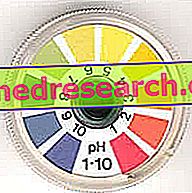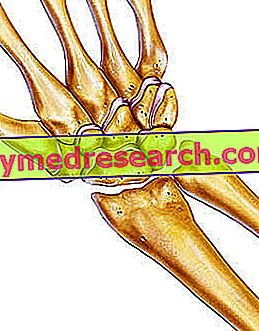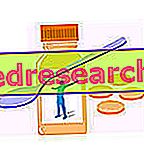By Dr. Antonio Parolisi
Considerations on the capacity of acidification and alkalization in the diet and on the effects of pH in the human body
1) "The cell is theoretically immortal, it is the fluid in which it lives that degrades itself. By replacing this fluid at regular intervals we will give the cell what it needs to nourish itself and, as far as we know, the pulse of life can continue indefinitely"
2) "All deaths are due to a progressive situation of organic acidity"
These two statements, made respectively by dr. Alexis Carrel, Nobel Prize winner for Medicine and Physiology (the first) and by Dr. Cee W. Crile MD (the second one), make us think a lot about the ability of the power of hydrogen ions (pH) to acidify a substance and its consequences on a cellular structure.
These considerations about hydrogen ions, although they may seem far removed from the realities of a sportsman who trains and feeds regularly, are actually closely related to anything he can eat or drink. Everything!!!

The pH indicates the amount of hydrogen ions dissolved in a solution. The pH terminology ( pondus hydrogenii) indicates "hydrogen power". It is represented on a scale of 1 to 14, where 7 indicates a condition of neutrality. Values from 1 to 6 are considered to be acids and values from 8 to 14 are considered basic or alkaline.
In the human body there are pH conditions that must be respected in order to maintain the vitality of the cell described above. For example the physiological and homeostatic condition of human blood sees a pH at 7.4; if this value is altered the cells do not survive.
This does not mean that the acids in the body are harmful, on the contrary, there are some types that are fundamental for the performance of vital functions, such as gastric juices. Remember that even physical activity causes an increase in blood acidity, due to the production of lactic acid; therefore in energetic terms it could be defined that the activities with anaerobic lactate component have the effect of acidifying the system. Obviously the body puts in place a whole series of buffer systems to normalize and rebalance the system and bring it back to a condition of physiological neutrality. Nature thinks of everything!
Unfortunately, however, the eating habits and lifestyles of an individual can create chronic conditions of continuous adaptation of the body, which is forced to constantly neutralize the acidity at the expense of precious substances that are gradually depleted.
Acidifying foods contain acids or in other cases they turn into acidic substances with the digestive process. The body will tend to rebalance the acid-base system through mineral salts and alkaline substances. So an excess of acidic foods tends to make the body of precious minerals lacking.
The consequences of this phenomenon are really dangerous and from a clinical point of view absolutely not negligible. In fact, this "buffer mechanism" of the body, reducing alkaline minerals, can lead to real pathological conditions, such as bone demineralization, dental caries, dryness and cracking of the skin, anemic blood and pictures of general malaise, such as a sense of weakness and anxiety. In growing young people deviations of the spine can be observed.
Second part "



